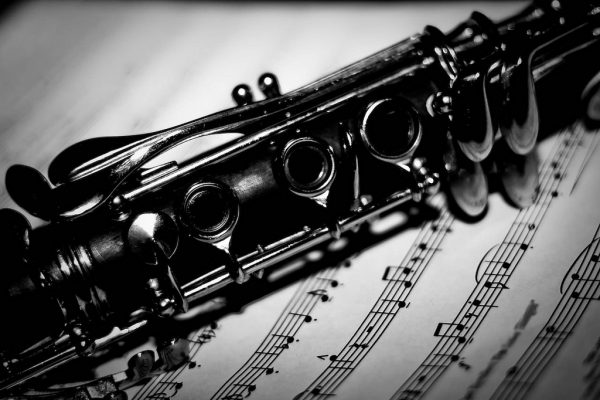
I’ve been surrounded by music and playing the flute my whole life. Throughout the years, I’ve played in ensembles throughout Long Island and around the Hudson Valley area, including the Nassau Suffolk Performing Arts Concert Band and the SUNY Ulster Wind Ensemble. There are some pieces of music that I absolutely love, but felt that the composer had no idea how to write for the flutes. The list could be longer than just 10, but here are my top composers that I love, but despise.
10. Václav Nelhybel
Originally born in Polanka, Czechoslovakia, Nelhybel composes monstrous and magnificent works that leave you breathless – literally, because he gives you barely any moments to breathe. The entirety of “Trittico” is difficult to play and was composed in octaves that no instrument should play in.
9. Samuel R. Hazo
An American composer, but every single one of his compositions sounds the same. Don’t get me wrong, I love his modern works that sound pretty, but change time signatures every 10 measures. Listen to “Ride,” then listen to “Rush” and finally listen to “Enchanted Spaces.” They all sound the same.
8. Eric Whitacre
In my opinion, Whitacre is the master of harmonization. He creates harmonies in keys that I would never imagine and they all sound beautiful. Although they may sound pretty, take one look at the music and you’ll be nauseous. “Equus” is the epitome of a Whitacre creation that’s fun to listen to, but is nearly impossible to play.
7. Gustav Holst
Mostly famous for his composition, “The Planets,” I believe he has more impressive works, such as “First Suite in Eb.” However, I will never forget when I performed a marching band version of “Mars: The Bringer of War” from “The Planets” in my junior year of high school. We had to march in a 5/4 time signature, which was difficult.
6. Percy Grainger
Born in Australia, but spent his life in upstate New York, Grainger specializes in folk songs. Similar to Nelhybel, Grainger likes to write in octaves that flutes should never play in. You can hear the horrifyingly out-of-tune playing in beautiful pieces such as “Children’s March” and “Lincolnshire Posy.”
5. Ralph Vaughan Williams
I learned that people only refer to him as Vaughan Williams and leave off his first name. I also have nothing bad to say about his work because I love it all. I always get excited when my conductor wants to rehearse “English Folk Song Suite.” I can’t wait for the day when I get to perform “Fantasia on Greensleeves,” which is practically a flute solo.
4. Mark Camphouse
I consider Camphouse to be the modern day Beethoven because he writes powerful, emotional music. His pieces have very dark, sensitive meanings behind them, such as “Watchman, Tell Us Of The Night,” which is a tribute to the survivors of child abuse. You have to put your heart and soul into his music to truly play it.
3. James Swearingen
This is the only composer’s music you will ever play in middle school. He does not compose anything harder than a level four New York State School Music Association (NYSSMA) piece. I think the last piece I performed was “Flight of Valor,” in my freshman year of college, which was painful to play.
2. Alfred Reed
Another one of those composers who writes big, incredible pieces of music, but doesn’t give the flutes time to breathe. I remember seeing the Hofstra University Symphonic Band perform “Russian Christmas Music” when I was a freshman in high school and I told myself that I couldn’t die before playing that piece. Thankfully, Dr. Joël Evans, conductor of the SUNY New Paltz Symphonic Band, had us play it for our 2015 winter concert and I loved every minute of it.
1. Wolfgang Amadeus Mozart
I will never forgive Mozart for his compositions that always cadence and sound like he’s about to end the phrase, but no, it continues. I played “Mozart’s Concerto for Flute in G Major” for NYSSMA in my freshman year of high school and I remember telling my flute teacher that certain sections of the piece sounded like they should have ended, but they didn’t.
